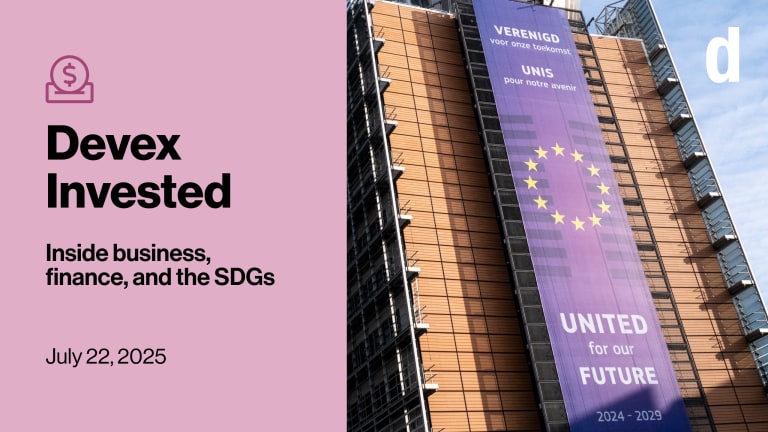
U.K. NGOs could miss out on 140 million euros ($150 million) of funding a year from the European Union as a result of Brexit, according to new research by Bond, the U.K. NGO network, with some organizations saying they are already feeling the impact.
While the specific terms of a departure deal remain unknown, U.K. charities could lose their eligibility for most EU development funding after the country leaves the EU, the study — which is not yet published — suggests.
The figure of 140 million euros is based on the amount of funding received by U.K. NGOs in 2015, Bond said. However, the U.K. also contributes toward EU funding pots.
Based on the 2015 figures, small and medium-sized organizations reliant on EU contracts are likely to be worst affected. But larger U.K.-based international NGOs that traditionally receive high contributions from the EU’s 1 billion euro European Civil Protection and Humanitarian Aid Operations budget will also be hard hit.
See more related stories:
► First clues for post-Brexit aid cooperation between EU and UK
Some civil society groups have reported that they are already losing out on longer-term EU contracts after U.K. Prime Minister Theresa May officially triggered Britain’s exit from the Union last week, Tamsyn Barton, Bond’s chief executive, said.
“Based on our research, small and medium-sized organizations are going to be the most affected due to … their smaller total budgets, so EU grants create a bigger hole when they are no longer there,” she told Devex.
“Having said that ... ECHO funding tends to go to the larger NGOs, so everybody is hit at the end of the day — and, of course, beneficiaries too,” she said.
Traditional U.K. recipients of ECHO funding include Oxfam, International Rescue Committee, International Medical Corps and Save the Children.
“The humanitarian sector is likely to take the biggest total hit, which I think should worry people,” Barton added. “Human development, including health and agriculture and civil society strengthening, could also be hit.”
The EU is a major source of development funding, contributing approximately 59.3 billion euros ($63 billion) in official development assistance in 2015. The EU’s institutions are responsible for dishing out approximately one-fifth of this budget through EuropeAid, which funds development projects, and ECHO, which finances humanitarian assistance.
However, Johannes Trimmel, president of CONCORD Europe, the European confederation of development NGOs, suggested that bigger NGOs that have strong chapters in the EU might be able to protect their access to European development funding by transferring their EU implementing budgets to organizations based in the region.
He added that U.K. NGOs may also retain access to the European Development Fund post-Brexit.
The EDF, which provides development aid to Africa, the Caribbean and the Pacific regions, as well as to overseas territories, is not part of the official EU budget and contributions are made on a voluntary basis.
In 2015, the U.K. contributed nearly 15 percent — around $585 million — of the fund. If it continues to support the EDF after it leaves the EU, British NGOs could still receive funds, Trimmel said.
Furthermore, the EDF may be restructured after the current commitments end in 2020, which could represent an opportunity to renegotiate the U.K.’s involvement, he suggested. “There could be sufficient political reasoning to say it’s a worthwhile engagement to continue as an example of multilateral cooperation,” he said.
At the same time, however, EU development spending will suffer from the loss of U.K. core contributions and, potentially, from political pressures to divert funding to security, Trimmel predicted.
“There are already pressures on issues like migration and security and so I’m expecting additional investments will go to security, at the cost of others, and likely development is one area under threat,” he said.
Barton and Trimmel advised NGOs from all countries to collaborate closely, to monitor EU funding contracts and to share information.
“It’s important for all NGOs to join hands and to stay firm together to say ‘we don’t allow development cooperation to be diluted and diverted and put under other political and policy areas,’” Trimmel said. “Greater collaboration is needed now more than ever.”
For more U.K. news, views and analysis visit the Future of DfID series page, follow @devex on Twitter and tweet using the hashtag #FutureofDfID.








